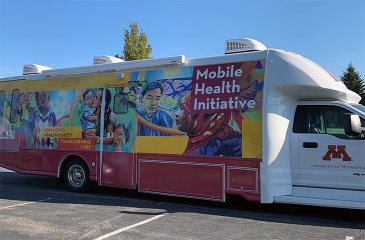Welcome to our first UMN Mobile Health Initiative (MHI) quarterly update newsletter! Our goal is to update volunteers, administrators, funders and others on MHI activities and make this something you are excited to read. We will provide updates on activities, impact, highlight a community partner and/or a MHI member, and new opportunities.
Mobile health is rapidly evolving as an innovative tool to meet health needs of the most vulnerable populations. Hospitals care for the sickest people, and brick and mortar clinics detect disease and can provide outstanding continuity of care. However, both of these require access to care, willingness to go, and can be costly, particularly when emergency services are used. Mobile health is complementary to primary care by providing accessible, community-engaged, affordable or free, culturally appropriate health screenings and care where people work, live and play. Working with trusted community partners, MHI brings University-level advancements (and a really cool 39’ mobile unit) to the community with screening, care coordination, and provision of needed services. Our work is interprofessional (medical, dental, pharmacy, nursing) and is thus more effective as a whole than any of its parts.
Our whole society, and in particular our health care systems, will be and should be judged by how we care for the most vulnerable populations. MHI is under the UMN Office of Academic Clinical Affairs, which is “Reimagining Health by driving innovation and discovery through collaborations across the University, advancing interprofessional care and training, and being a strong partner to the state, industry and community.” With numerous health professional volunteers, interprofessional trainees, generous foundationfunding and a small but talented team, the MHI provides compassionate health prevention and care, and I’m honored to serve as the medical director.
Thank you,
Jonathan Kirsch, MD, Associate Professor of Medicine
Activity Updates
While we have screened, treated and coordinated care for thousands of people in the past year, 2022 is a year of reflection, organization, community engagement and action. We are able to leverage University resources with community power to improve health.
- Our partnership with the state of Minnesota, particularly with the Departments of Human Services and Health, and community clinics have allowed us to link optimal services for our newest Minnesotans coming from Afghanistan and serves as a model for the United States.
- We are developing a Community Advisory Board and strengthening partnerships with community organizations like Black Nurses Rock Twin Cities Chapter, Power of People Leadership Institute, Southside Harm Reduction and Tri-Valley Opportunity Council.
- We are hiring incredibly talented faculty and staff, and providing meaningful and impactful service-learning experiences for UMN health sciences learners.
By The Numbers
- 37 Events
- 76 Afghan Health Screening Clinics
- 1607 Volunteer Hours
Community Partner Highlights
The Power of People Leadership Institute engages youth and adults in research-based interactive learning experiences through mentoring and curriculum that challenges, inspires and informs them to overcome their obstacles and find success in every area of life.
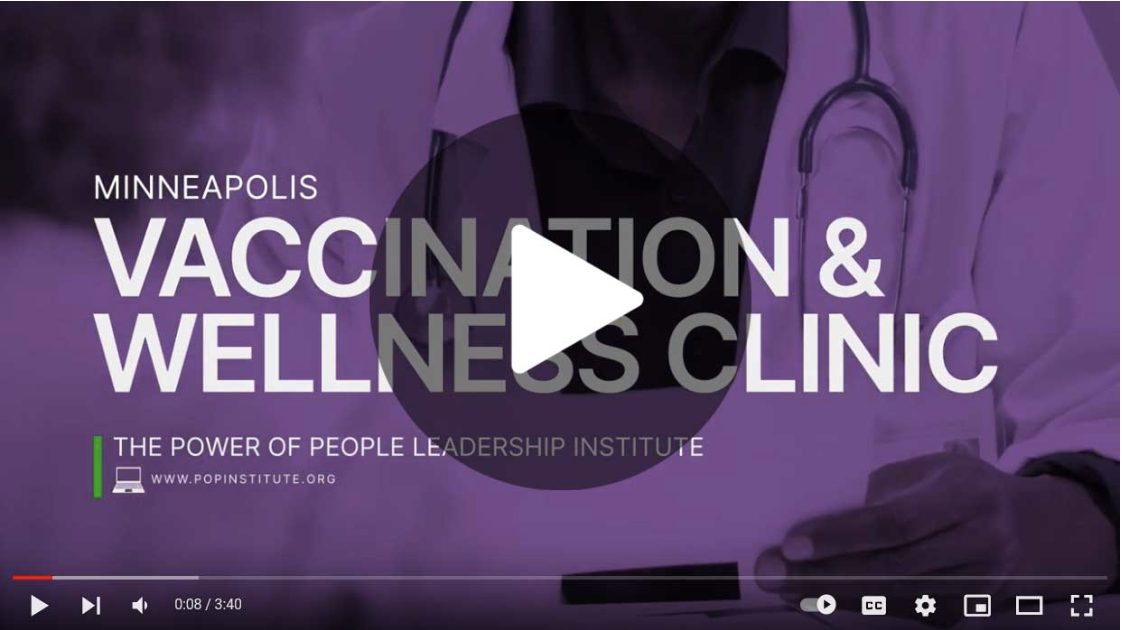
This past year we have partnered with them and Black Nurses Rock Twin Cities Chapterto organize health fairs and provide COVID vaccinations to their corner of the north Minneapolis neighborhood.
Presentations & Publications
Many of our volunteers are health sciences students and trainees committed to making healthcare accessible. Volunteering and learning with the Mobile Health Initiative, they engage with Minnesotans across the state and gain insights on how to build community partnerships and meaningful engagement.
Below are posters highlighting our students’ work presented locally and nationally:
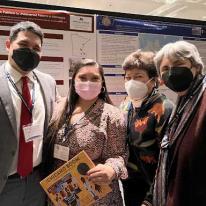
Delivering Eye Care in a Mobile Clinic Platform to Underserved Patients in Minnesota
Sydney Geiger, Altair Alonso, Denise Quintanilla, Isai Ortiz, Sinibaldo Romero Arocha, Susan Molina, Shahid Jaffer, MD, Jonathan Kirsch, MD and the Tri-Valley Opportunity Council
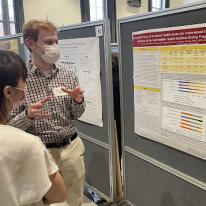
Drew Adamek, Bhavana Goparaju, MS, Maggie Eckerstorfer, Opeyemi Adesida, MBBS, MPH, Shahid Jaffer, MD, Jonathan Kirsch, MD
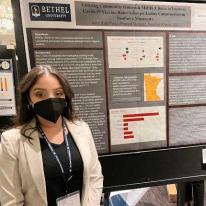
Amy Ruiz Plaza, Jonathan Kirsch, MD
Events
- DRIVEN Campaign Celebration | McNamara Alumni Center
University’s $4B Campaign
April 27 - Cardiovascular Health Fairs | Across the Twin Cities
Messianic Care PLLC, Black Nurses Rock Twin Cities Chapter, UMN Extension, Stairstep Foundation
April - May - Latino Festival & Health Fair | Dodge Center
UMN Our Community Our Health & UMN Extension
June 4 - CUHCC Lemonade Event | Minneapolis
June 11
